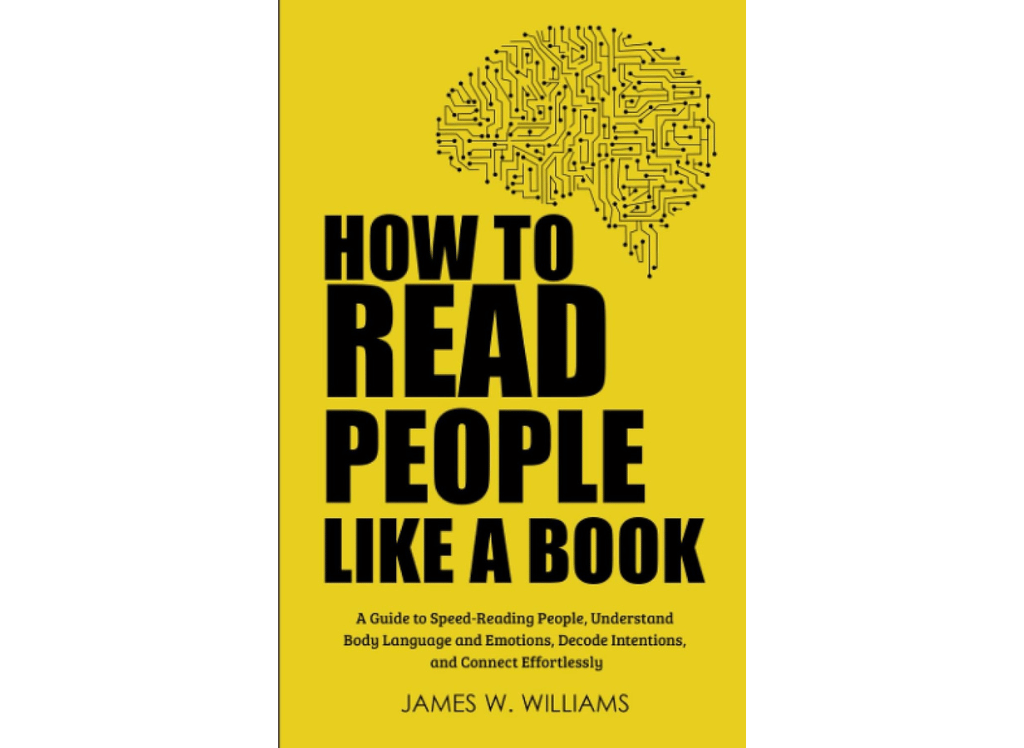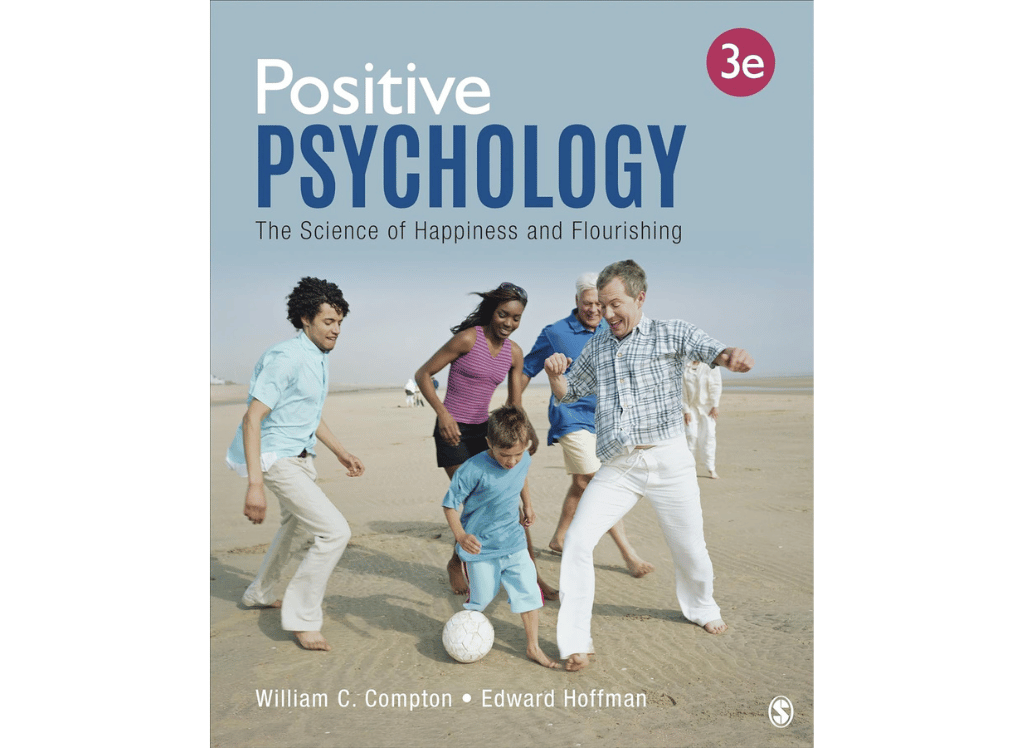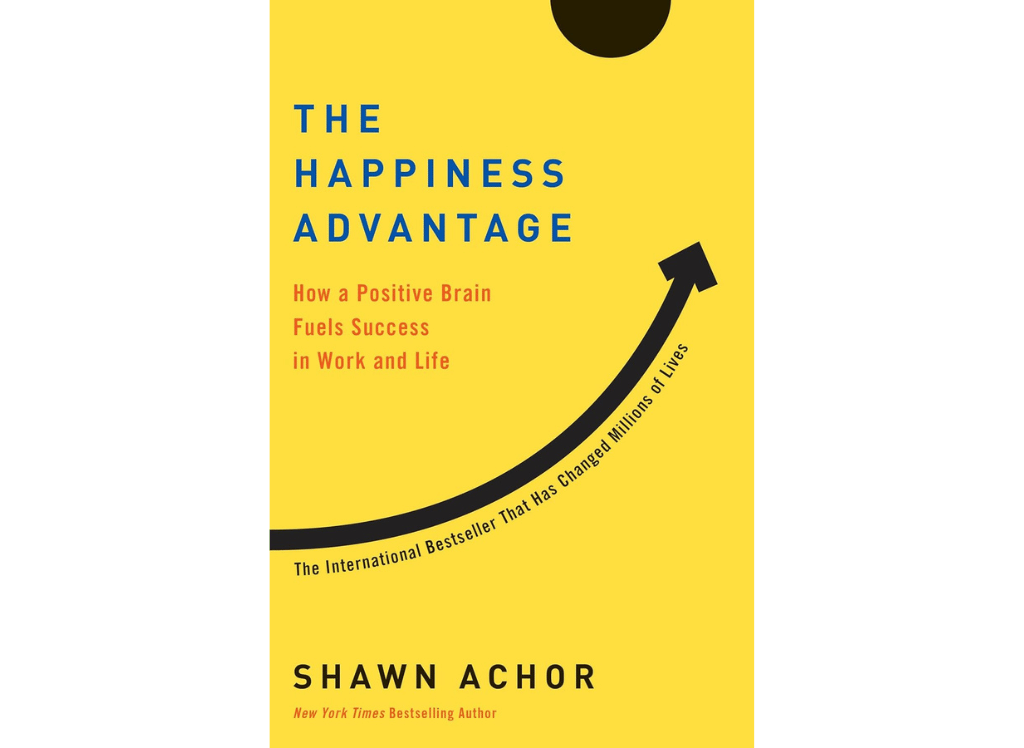6 Best Positive Psychology Books to Reinvent Yourself!
Dive into the world of positive psychology with our top six picks! These enlightening reads are not just books, but gateways to a renewed self. Get ready to embark on a transformative journey and redefine your life's perspective. Ignite your passion for positivity!
Welcome to Raquel's Reviews! As an Amazon Associate, we may earn a commission from qualifying purchases, but we promise the prices are still the same for you!
Positive psychology is nothing short of revolutionary! It illuminates the path to a satisfying life, not just by alleviating mental stress, but by fostering positive emotions, happiness, and psychological wealth. It's the secret sauce to seeing the glass half full, always!
But how can we truly harness this powerful approach to living a fuller life? That's where our top six Positive Psychology Books come in! These carefully selected gems are not just any books; they're your gateway to understanding and applying positive psychology, offering insights from leading psychologists who've written multiple books over more than twenty years.
Are you all set to start this amazing journey? Let's jump right in!
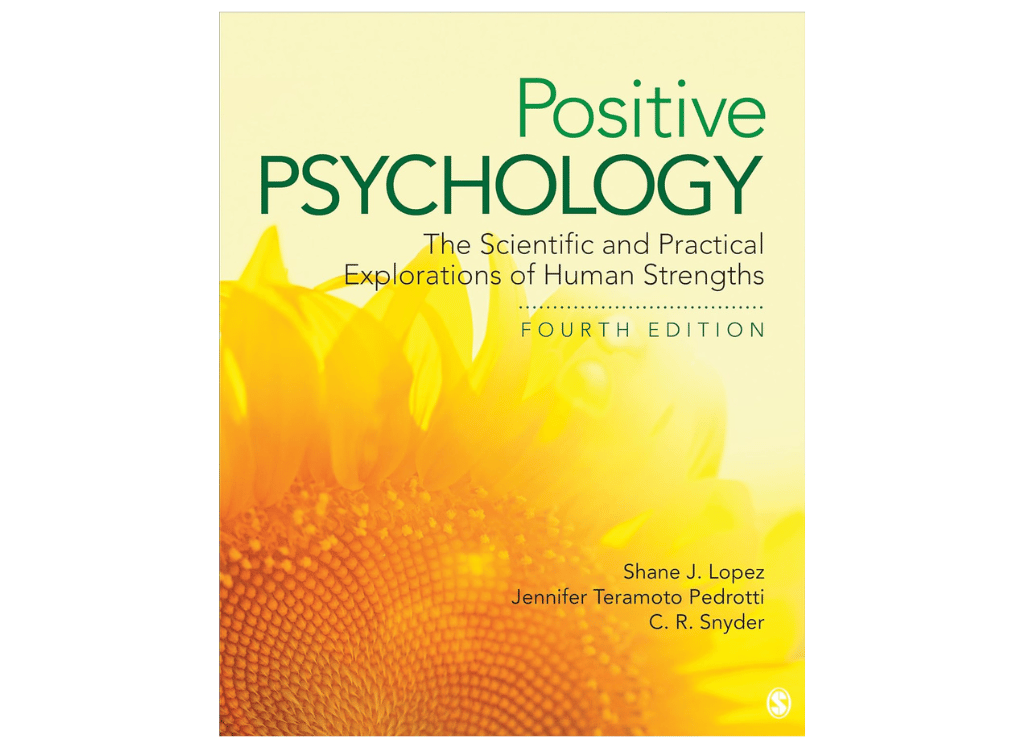
1. Positive Psychology: The Scientific and Practical Explorations of Human Strengths
Why We Love It
Positive Psychology: The Scientific and Practical Explorations of Human Strengths is a transformative resource that provides an in-depth understanding of the power of positive thought. This book helps readers recognize and cultivate their capacities for resilience, creativity, and positive emotions. The wealth of knowledge enclosed within its pages not only encourages personal development and self-improvement but also provides tools for enhancing interpersonal relationships. By fostering a positive mindset, this book offers invaluable insights into achieving a satisfying and fulfilling life.
Why We Love It
Reading "How to Read People Like a Book" equips you with the skills to discern people's true intentions, motivations, and emotions, often before they even utter a word. The ability to read people effectively is an invaluable skill that can enhance your personal and professional relationships. By understanding how to interpret the subtle cues in body language and communication patterns, you're better prepared to navigate complex interactions and situations. This book not only improves your communication and connection with others but also bolsters your confidence and self-understanding, unlocking a deeper, more fulfilling engagement with the world around you.
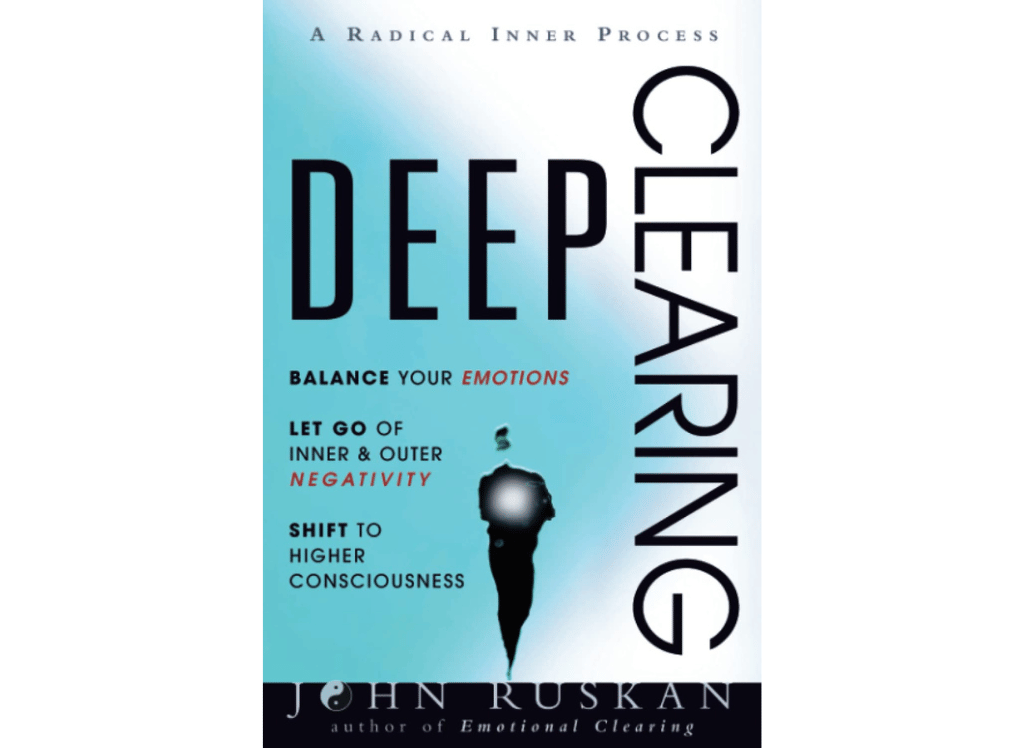
3. DEEP CLEARING: Balance Your Emotions, Let Go Of Inner & Outer Negativity, Shift To Higher Consciousness: A Radical Inner Process
Why We Love It
DEEP CLEARING: Balance Your Emotions, Let Go Of Inner & Outer Negativity, Shift To Higher Consciousness: A Radical Inner Process" offers numerous benefits to its readers. It provides a holistic self-therapy system that aids in achieving emotional balance and overcoming negativity from within. The book uses a unique blend of Eastern meditation-mindfulness principles and Western psychological insights to help readers clear their subconscious and restore emotional stability. Additionally, it provides the tools needed to harness emotional pain as a catalyst for self-evolution rather than a source of suffering. Ultimately, DEEP CLEARING guides the reader through consciousness shifts, leading to a more joyful, positive life experience.
Why We Love It
The book, Positive Psychology: The Science of Happiness and Flourishing, serves as a comprehensive guide to understanding the facets of positive psychology. It demonstrates the benefits of cultivating positive psychological traits, fostering a mindset of happiness and well-being, and nurturing thriving institutions. The book provides readers with actionable strategies and exercises, helping them apply the principles of positive psychology in their everyday lives. By exploring the science behind happiness and its impact on personal development, this book empowers readers to harness their inner strengths and lead a life marked by positivity and personal fulfilment.
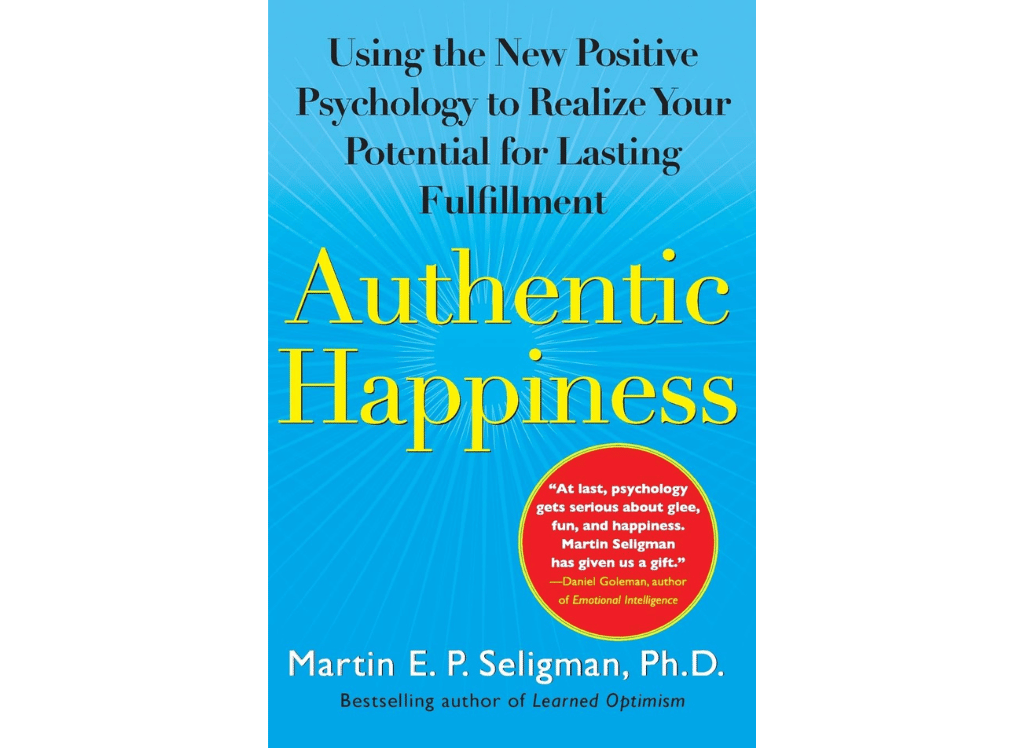
5. Authentic Happiness: Using the New Positive Psychology to Realize Your Potential for Lasting Fulfillment
Why We Love It
This book provides a fresh perspective on attaining genuine happiness by leveraging one's inherent strengths. It challenges the traditional focus on deficits and pathologies, instead advocating for the cultivation of positive traits to enhance life satisfaction. The book’s interactive approach, with practical exercises and self-assessments, allows readers to personally engage with the material and apply learned concepts in their daily lives. The unique online program further extends the learning experience, reinforcing the book’s teachings in a dynamic, accessible format. Ultimately, this book equips readers with the tools and understanding necessary to navigate life's challenges with resilience, maintain a positive outlook, and lead a deeply fulfilling life.
Why We Love It
This book offers an insightful examination of how happiness can significantly influence our personal and professional success. It shreds the conventional view of success-precedes-happiness, instead presenting compelling evidence that happiness itself is an essential precursor to success. Reading this book will arm you with practical strategies for fostering positivity and optimism, which in turn can accentuate your productivity, creativity, and problem-solving skills. Furthermore, it underscores the benefits of strong social networks and demonstrates how positive changes can ripple out to impact teams, organizations, and families. Overall, it's an essential read for anyone seeking to harness the power of a positive mindset to fuel their journey toward success.
Positive Psychology Books FAQs
You've made it to our Frequently Asked Questions (FAQs) section! We're delighted to address some of the common queries you might have about our cherry-picked selection of positive psychology books. Whether you're curious about the authors, the content, or how these books can enrich your life, we've got you covered. So, let's dive into your burning questions without further ado!
1. What is Positive Psychology?
Positive Psychology is a branch of psychology that focuses on the study and promotion of positive aspects of human experience such as happiness, well-being, and flourishing. It aims to enhance quality of life and prevent pathological behavior.
2. Who are some leading Positive Psychologists?
Some of the leading Positive Psychologists are Martin Seligman, Christopher Peterson, Mihaly Csikszentmihalyi, and Barbara Fredrickson.
3. Why is Positive Psychology important?
Positive Psychology is important because it complements traditional psychology's focus on illness with a focus on well-being and fulfillment. It helps people identify their strengths and use them to increase and maintain their levels of happiness.
4. What is the aim of Positive Psychology?
The aim of Positive Psychology is to shift the focus of psychological research and practice from disease, disorder, and disability to strengths, capabilities, virtues, values, and the factors that contribute to a full and meaningful life.
5. How can I apply Positive Psychology in my daily life?
Positive Psychology can be applied in your daily life by incorporating various practices that promote well-being and happiness. One way is by practicing gratitude, which involves acknowledging and appreciating the positive aspects of your life, big or small. Cultivating optimism is another key aspect, where you focus on positive outcomes and maintain a hopeful outlook. Nurturing relationships with loved ones and building meaningful connections can also contribute to a positive mindset. Additionally, finding your passion and engaging in activities that bring you joy and fulfillment can greatly enhance your well-being. Setting and working towards meaningful goals provides a sense of purpose and accomplishment. Taking care of your body through regular exercise, healthy eating, and adequate rest is also crucial for overall well-being. Lastly, developing resilience and the ability to bounce back from challenges can help you navigate through life's ups and downs with greater ease. By incorporating these practices into your daily routine, you can experience the benefits of Positive Psychology and lead a more fulfilling life.
6. What are the best Positive Psychology books?
Some of the best Positive Psychology books are "Authentic Happiness: Using the New Positive Psychology to Realize Your Potential for Lasting Fulfillment" by Martin Seligman, "The Happiness Hypothesis: Finding Modern Truth in Ancient Wisdom" by Jonathan Haidt, and "Flourish: A Visionary New Understanding of Happiness and Well-being" by Martin Seligman.
7. What are some key concepts in Positive Psychology?
Positive Psychology encompasses several important concepts that contribute to individual well-being and flourishing. One of these concepts is "flow," which refers to the state of complete immersion and enjoyment in an activity. Another key concept is the identification and cultivation of strengths and virtues, which involves recognizing and leveraging one's unique qualities to thrive in various aspects of life. Additionally, Positive Psychology emphasizes the development of resilience, the ability to bounce back from adversity and navigate challenges with resilience and determination. Positive thinking, or adopting an optimistic mindset, is also a fundamental aspect of Positive Psychology, as it promotes mental and emotional well-being. Furthermore, self-efficacy, the belief in one's ability to succeed and achieve goals, plays a crucial role in Positive Psychology. Lastly, the ultimate goal of Positive Psychology is to enhance overall well-being, encompassing physical, mental, and emotional health, as well as satisfaction and fulfillment in life.
8. How does Positive Psychology differ from traditional psychology?
Positive Psychology differs from traditional psychology in several ways. While traditional psychology primarily focuses on diagnosing and treating mental illness, Positive Psychology takes a different approach. It aims to enhance well-being and happiness by studying and understanding the positive aspects of human nature. It explores topics such as personal strengths, resilience, optimism, and positive emotions. By shifting the focus from pathology to flourishing, Positive Psychology offers a more holistic and proactive perspective on mental health and overall well-being.
9. What is the role of Positive Psychology in therapy?
In therapy, Positive Psychology plays a crucial role in helping clients identify and leverage their unique strengths and abilities. By focusing on positive emotions, character strengths, and meaningful experiences, Positive Psychology aims to enhance well-being and foster personal growth. It empowers individuals to cultivate positive relationships, build resilience, and create a life that is not only fulfilling but also deeply meaningful and purposeful. By incorporating Positive Psychology interventions into therapy, practitioners can guide clients towards a more positive and flourishing state of being.
10. Is Positive Psychology scientifically based?
Yes, Positive Psychology is based on rigorous empirical research. It uses scientific methods to explore what makes life most worth living.
11. What is Flow in Positive Psychology?
Flow, also known as the state of optimal experience, is a mental state of complete absorption in an activity. It is a state where individuals are so deeply engaged and involved that everything else seems to fade away. Time flies by effortlessly, and the activity itself becomes intrinsically rewarding, providing a sense of fulfillment and satisfaction. In this state, individuals experience a perfect balance between their skills and the challenges presented by the activity, resulting in a heightened sense of focus, enjoyment, and a complete immersion in the present moment. Flow is a powerful concept in positive psychology that highlights the importance of finding activities that bring us joy and enable us to experience a state of deep immersion and fulfillment.
12. Can Positive Psychology help with depression?
Positive Psychology interventions have been extensively studied and proven to be effective in alleviating symptoms of depression. By focusing on promoting positive emotions, thoughts, and behaviors, these interventions provide individuals with valuable tools to enhance their well-being and overall mental health. They can be used in conjunction with traditional treatment approaches, offering a holistic and comprehensive approach to managing and overcoming depression.
13. What is the PERMA model in Positive Psychology?
The PERMA model, introduced by Martin Seligman, is a comprehensive well-being theory that explores the factors contributing to human happiness. In this model, PERMA stands for Positive Emotion, Engagement, Relationships, Meaning, and Accomplishment. Each element plays a crucial role in shaping our overall well-being and life satisfaction. Positive Emotion refers to experiencing joy, gratitude, and other positive feelings. Engagement involves being fully absorbed and immersed in activities that bring us a sense of flow. Relationships emphasize the significance of social connections and support networks. Meaning relates to having a sense of purpose and understanding the greater significance of our actions. Lastly, Accomplishment represents the fulfillment we derive from achieving our goals and experiencing a sense of mastery. Together, these five elements provide a framework for cultivating and sustaining well-being in our lives.
14. How can I study Positive Psychology?
If you're interested in studying Positive Psychology, there are several avenues you can explore to deepen your understanding of this field. You can opt for online platforms that offer comprehensive courses specifically focused on Positive Psychology, providing you with a structured and interactive learning experience. Additionally, many universities offer dedicated courses and programs in Positive Psychology, allowing you to delve into the subject matter in a more academic setting. For those who prefer self-paced learning, books written by renowned experts in the field can provide valuable insights and practical techniques to apply in your daily life. Lastly, attending workshops and seminars conducted by experts can offer a hands-on and immersive learning experience, allowing you to interact with like-minded individuals and gain practical skills that can enhance your well-being.
15. What is the relationship between Positive Psychology and mindfulness?
Mindfulness, a state of being fully present and engaged in the current moment, is a fundamental concept in Positive Psychology. It involves intentionally paying attention to one's thoughts, emotions, and sensations without judgment. By cultivating mindfulness, individuals can develop a deeper understanding and acceptance of themselves, leading to increased happiness, well-being, and overall psychological health. Through practices such as meditation and self-reflection, mindfulness can enhance positive emotions, reduce stress and anxiety, and promote a greater sense of fulfillment and purpose in life. Thus, the integration of mindfulness into Positive Psychology provides valuable tools for individuals to cultivate resilience, foster positive relationships, and thrive in all aspects of their lives.
16. Can Positive Psychology help me with stress management?
Positive Psychology, a field of study focused on human well-being and flourishing, offers valuable insights and techniques for managing stress effectively. By incorporating practices that foster positivity, resilience, and gratitude, individuals can develop the skills and mindset needed to navigate and mitigate the impact of stress in their lives. Through cultivating a positive outlook and adopting strategies tailored to their unique circumstances, individuals can enhance their ability to cope with stress and promote overall well-being.
17. What is the difference between Positive Psychology and Happiness?
While happiness is a single emotional state characterized by feelings of joy and contentment, Positive Psychology is a multidisciplinary field that encompasses the study of happiness as well as other positive emotions such as gratitude, compassion, and awe. It also explores the development of personal strengths, the cultivation of meaningful relationships, and the pursuit of fulfilling goals. In essence, Positive Psychology goes beyond happiness to examine the various factors and practices that contribute to a flourishing and well-lived life.
18. What are some criticisms of Positive Psychology?
One common criticism of Positive Psychology is that it tends to place excessive emphasis on the role of the individual in achieving happiness, often overlooking the impact of societal factors on overall well-being. Critics argue that by focusing solely on individual responsibility, Positive Psychology may neglect the importance of addressing systemic issues that influence happiness. Additionally, some argue that the emphasis on constant happiness promoted by Positive Psychology may create unrealistic expectations and pressure individuals to always feel happy, which can be both unattainable and potentially detrimental to mental health.
19. What is a growth mindset in Positive Psychology?
A growth mindset, a concept in Positive Psychology, is the belief that abilities and intelligence can be developed through dedication, perseverance, and continuous effort. It emphasizes the idea that individuals can improve and expand their capabilities by embracing challenges, seeking feedback, and learning from failures. This mindset stands in contrast to a fixed mindset, which assumes that abilities are fixed and unchangeable. By cultivating a growth mindset, individuals are more likely to achieve their full potential and thrive in various aspects of life.
20. What are some practical exercises in Positive Psychology?
Positive Psychology offers various practical exercises that can enhance well-being and foster a positive mindset. Some of these exercises include practicing gratitude by expressing appreciation for the good things in life, setting meaningful goals that align with personal values and aspirations, identifying and leveraging one's unique strengths to thrive in various aspects of life, and engaging in mindfulness activities to cultivate present-moment awareness and reduce stress. These exercises, when consistently practiced, can contribute to a more fulfilling and positive life experience.
21. How does Positive Psychology relate to positive leadership?
Positive Psychology, a branch of psychology focused on promoting well-being and flourishing, can be directly applied to leadership. By integrating the principles of Positive Psychology into their leadership approach, positive leaders can create a work environment that fosters positive emotions, such as gratitude and optimism. They also cultivate a growth mindset among their team members, encouraging them to embrace challenges and view failures as opportunities for learning and growth. Furthermore, positive leaders prioritize building strong relationships based on trust, empathy, and effective communication, which leads to enhanced collaboration and team cohesion. Lastly, positive leaders promote self-awareness and reflection, encouraging individuals to assess their strengths and weaknesses, set meaningful goals, and continuously improve themselves. By incorporating these essential qualities into their leadership style, positive leaders can create a thriving and high-performing team.
22. What are some popular applications of Positive Psychology?
Some popular applications of Positive Psychology include coaching, education, organizational development, mental health therapy, and personal development. Overall, Positive Psychology offers valuable insights for individuals and communities looking to achieve a more fulfilling and positive life experience. With a wide range of books available on the subject, readers can explore the various concepts, theories, and practical strategies of Positive Psychology in-depth.
23. How has Positive Psychology evolved over the years?
Positive Psychology has evolved from a relatively new field of study to a recognized and respected discipline within psychology. It has gained momentum in research, practice, and media since its inception in the late 1990s. Positive Psychology interventions have also been increasingly incorporated into various fields such as education, mental health therapy, and leadership development. With ongoing research and application, Positive Psychology continues to evolve and contribute to the well-being of individuals and society as a whole.
24. Who should read books on Positive Psychology?
Books on Positive Psychology are beneficial for anyone looking to cultivate a positive mindset, increase life satisfaction, foster healthy relationships, or improve overall well-being. They are also valuable resources for professionals in the fields of psychology, education, leadership, and personal development.
25. Why is this topic relevant to everyday life?
Positive Psychology is highly relevant to everyday life as it offers evidence-based and practical strategies that can help individuals thrive and lead a happier, more fulfilling life. By understanding the concepts of Positive Psychology, readers can apply its principles in their daily lives and improve their overall well-being.
26. What are some key takeaways from Positive Psychology books?
Some key takeaways from Positive Psychology books include practices for cultivating positive emotions, identifying and utilizing personal strengths, fostering resilience, developing meaningful relationships, and setting goals aligned with one's values. These practical strategies can help individuals increase their psychological wealth and lead a more satisfying life.
27. How can I incorporate Positive Psychology into my daily routine?
You can incorporate Positive Psychology into your daily routine by starting with small, manageable practices such as expressing gratitude, engaging in mindfulness activities, setting goals, and using your strengths. Consistency and self-reflection will help you integrate these concepts further into your life for long-term benefits.
28. What is the Happiness Advantage?
The Happiness Advantage, a concept coined by positive psychologist Shawn Achor, refers to the significant impact that happiness and positivity have on our personal and professional success. It emphasizes the idea that happiness is not just a result of success but also an essential factor in achieving it. By cultivating a positive mindset, individuals can gain an advantage in their lives in various ways.
29. Why should I read multiple positive psychology books?
Reading multiple positive psychology books offers a deeper understanding and perspective on the subject. Each book may offer new insights, case studies, or practical exercises that can enhance your knowledge and benefit your personal development journey. Additionally, different authors may have unique styles or approaches to presenting information, which can broaden your understanding of Positive Psychology as a whole. Plus, reading can be an enjoyable and beneficial activity in itself!
30. How long has Positive Psychology been studied?
Positive Psychology has been studied for more than twenty years since its emergence as a formal discipline in the late 1990s. However, many of its concepts and principles have roots in ancient wisdom and have been explored throughout history by philosophers and psychologists alike. So, it's not an entirely new concept but one that has gained significant traction in recent years as more research supports its effectiveness.
Final Thoughts About the Best Positive Psychology Books
There you have it, the top six books that are our keys to the fantastic world of positive psychology. Each of these books has its unique way of sparking joy, instilling confidence, and inspiring a positive outlook towards life. They're not just books, but companions guiding you on a path to self-discovery, inner peace, and lasting happiness. These books illuminate the concept that fulfillment isn't just about avoiding hardship, but also about embracing positivity. So, why wait? Grab a book, get comfy, and embark on your journey to a happier, more prosperous life. Remember, the journey of a thousand miles begins with a single step, and these books are just the steps you need!
Happy Shopping! :)




